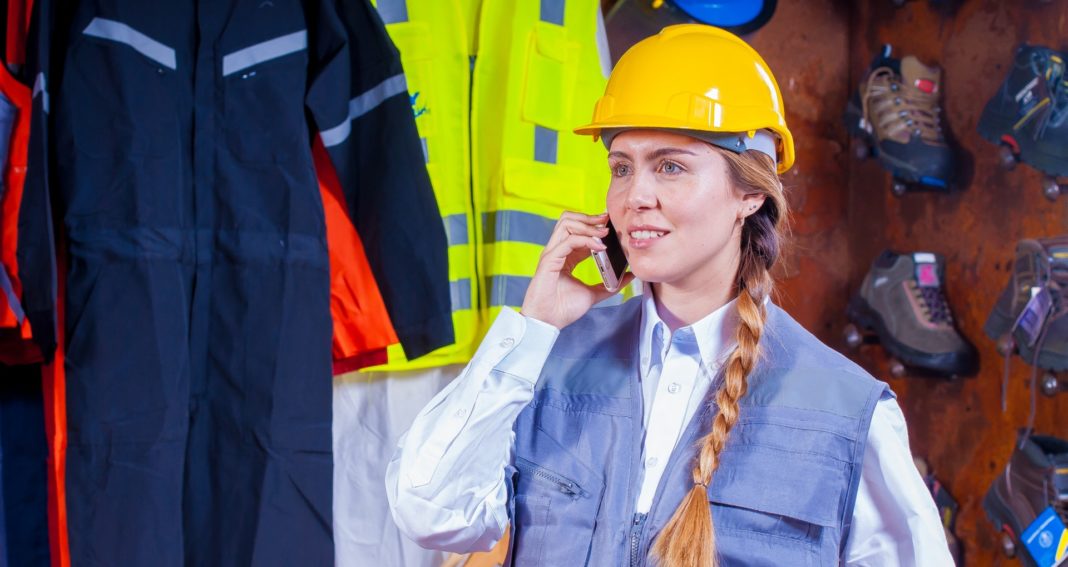To thrive at work, people need to feel psychologically safe. That means not worrying about job demands being excessive, about being mistreated by others, and in being confident about expressing ideas or opinions with being called out or ridiculed. Some workplaces do a good job of creating a workplace that focuses on employees being psychologically safe, and others not so much. Psychological safety is important because it allows people to work without feeling threatened by working conditions, demands, or other employees.
Psychological Safety Climate
Promoting psychological safety means building an organizational climate of psychological safety at work. Organizational climate is the shared perception among employees about what is encouraged versus discouraged at work. Workplaces that have good psychological safety climates promote the idea that employee psychological safety is important, and that everyone should be supported, valued and treated professionally. Expressing opposing views in a respectful way is encouraged, as often the best solutions come from evaluating different ideas. Workplaces that have poor climates are those where people experience excessive and unreasonable demands, disrespect from others, and unnecessary stress. Employees quickly learn in such organizations that disagreement invites a personal attack.
Why Psychological Safety Is Important
People who feel psychogically safe at work can do their jobs with confidence that they are capable of coping with demands, and that their work is valued. Feeling unsafe can be associated with anxiety at work, a loss of motivation as people focus more on staying out of trouble than doing their work. Dr. Maureen Dollard and her colleagues have conducted research on psychological safety climate (she calls it psychosocial safety climate) that shows good climates are associated with
- Higher work engagement. Good climates enhance motivation and allow employees to feel fully engaged at work.
- Better job performance. Employees who can focus on their work without the distraction of excessive work stress are likely to perform better.
- Job satisfaction. Employees enjoy working in good climates.
Poor climates are associated with
- Emotional distress. In poor climates, employees are likely to experience excessive stress that can result in emotional upset.
- Burnout. One of the by-products of negative emotional experiences at work is burnout.
- Depressive symptoms. The discomfort of poor climates can lead to increased depressive feelings such as hopelessness and sadness.
- Injuries and worker’s compensation claims. Stressful working conditions can make accidents and injuries more likely.
The Foundation for Other Climates
It is important for organizations to build climates that encourage employees to contribute to important outcomes. Such climates focus on particular activities that contribute to strategic directions. Psychological safety can serve as a foundation upon which other climates can be built because it helps reduce unnecessary stress, including mistreatment that can interfere with people staying on task.
- Customer service. Organizations with positive customer service climates emphasize the importance of serving customers. Psychological safety assures that customer service employees work in a positive environment that allows them to translate efforts into good service performance.
- Diversity climate. Diversity climate is about creating an inclusive workplace where everyone feels welcome and valued, no matter their age, ethnicity, gender, nationality, religion, or beliefs. It begins with psychological safety that establishes principles of respectful treatment for everyone.
- Ethical climate. An ethical climate is one where employees are encouraged to do the right thing. A large component of ethics involves fair treatment of others which is in large part the basis of psychological safety climate.
- Innovation climate. Organizations with good innovation climates encourage employees to come up with new ideas that can enhance organizational functioning and provide competitive advantage. Psychological safety means employees feel free to make suggestions and take risks without fear that they will be attacked or criticized.
Encouraging Psychological Safety Climates
There is a lot that organizations can do to build a psychological safety climate. It begins with the idea that people are important and should be supported and treated with respect. Managers from the top of the organization down should model the behavior that they expect from others by engaging in respectful dialogue and being supportive. This means encouraging people to contribute their ideas without feeling they will be personally attacked. Lively debate should be encouraged, but with a focus on the ideas and not the people who raise them. Psychological safety means managing the stressful aspects of work, both in terms of task demands and how people interact with one another. A climate of psychological safety is important to develop in the workplace so employees can achieve their potential without being distracted by unnecessary stress at work.
Subscribe to my blog. Enter your e-mail and click SUBSCRIBE
